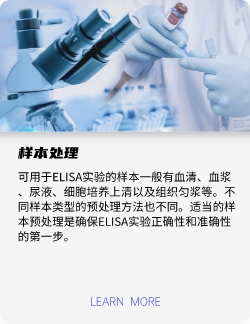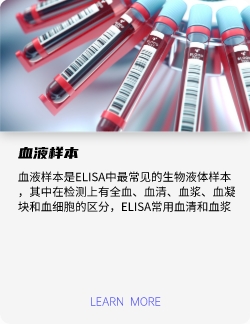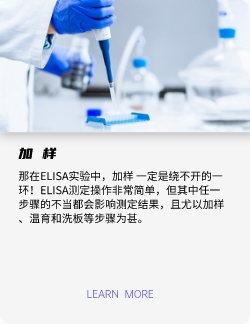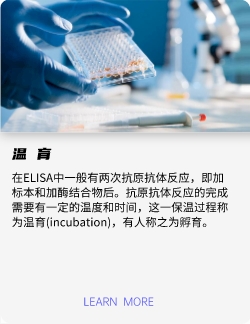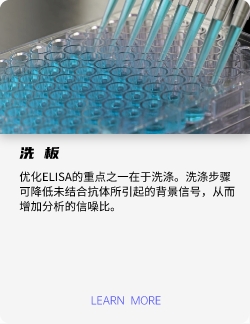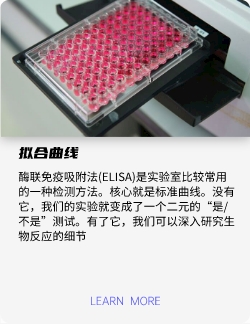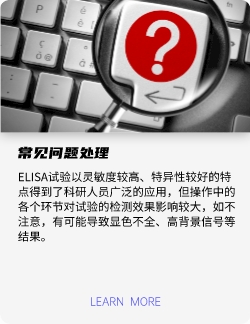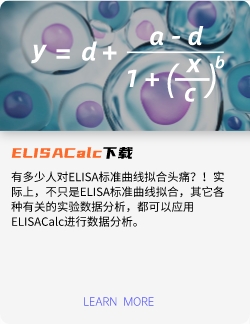| 别称
IL1-B; IL1-Beta; IL1F2; IL-1β; Interleukin-1 Family Member 2; Catabolin
| IL-1β 简介
白细胞介素1β(IL-1β)是一种在各种细胞中产生的促炎症细胞因子,包括单核细胞、组织巨噬细胞、角质细胞和其他上皮细胞。IL-1α和IL-1β都与相同的受体结合,并具有类似甚至相同的生物学特性。这些细胞因子具有广泛的活性,包括通过诱导IL-2的释放刺激胸腺细胞的增殖,B细胞的成熟和增殖,有丝分裂的FGF样活性和刺激滑膜细胞释放前列腺素和胶原酶的能力。然而,IL-1β是一种分泌型的细胞因子,而IL-1α主要是一种细胞相关的细胞因子。
| 特异性
可检测样本中大鼠的IL-1β,且与其类似物无明显交叉反应。
| 典型数据及参考曲线
由于实验操作条件的不同( 如操作者、移液技术、洗板技术和稳定条件等),标准曲线的OD值会有所差异。以下数据和曲线仅供参考,实验者需根据自己的实验建立标准曲线。
| 浓度(pg/mL) |
200 |
100 |
50 |
25 |
12.5 |
6.25 |
3.12 |
0 |
| OD值 |
2.24 |
1.63 |
1.01 |
0.55 |
0.44 |
0.31 |
0.25 |
0.09 |
| 校正OD值 |
2.15 |
1.54 |
0.92 |
0.46 |
0.35 |
0.22 |
0.16 |
- |
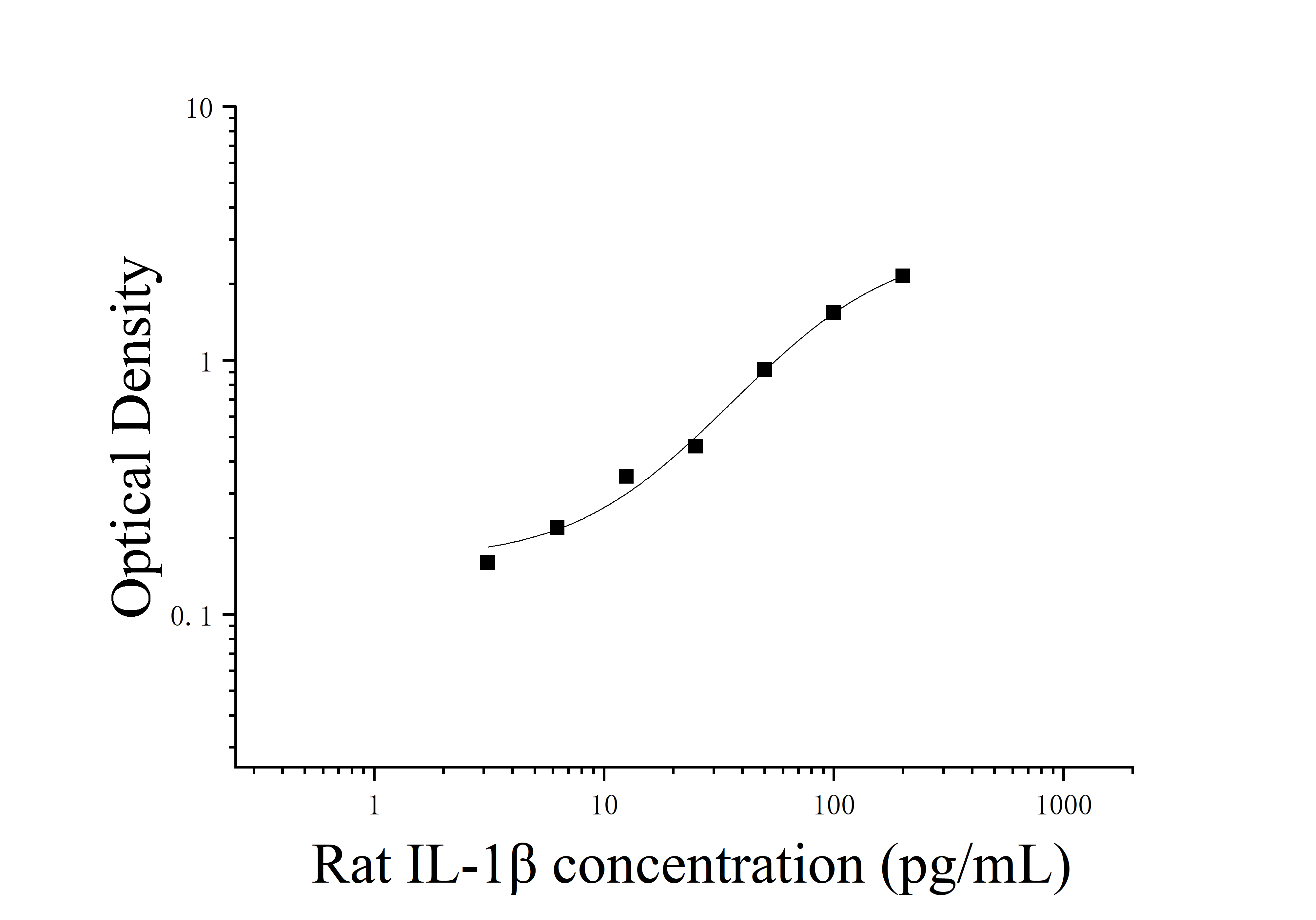
注意:本图仅供参考,应以同次试验标准品所绘标准曲线计算标本含量。
| 重复性
板内变异系数小于10%,板间变异系数小于10%
| 回收率
在选取的健康大鼠血清、血浆、细胞培养上清中加入3个不同浓度水平的大鼠IL-1β,计算回收率
| 样本类型 |
范围 |
平均回收率 |
| 血清(n=8) |
88-101 |
96 |
| 血浆(n=8) |
92-103 |
104 |
| 细胞培养上清(n=8) |
96-108 |
108 |
| 线性稀释
分别在选取的4份健康大鼠血清、血浆、细胞培养上清中加入高浓度大鼠IL-1β,在标准曲线动力学范围内进行稀释,评估线性。
| 稀释比例 |
回收率(%) |
血清 |
血浆 |
细胞培养上清 |
| 1:2 |
范围(%) |
84-99 |
88-96 |
90-110 |
| 平均回收率(%) |
91 |
95 |
99 |
| 1:4 |
范围(%) |
89-103 |
87-108 |
105-118 |
| 平均回收率(%) |
94 |
99 |
108 |
注:ELISA试剂盒检测范围等数据,因检测样本 的不同而调整,实际数据以随货说明书为准。
| ELISA操作视频

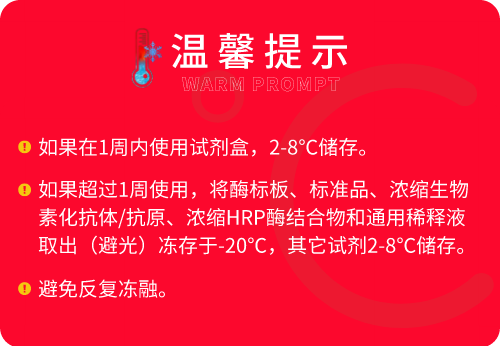
| ELISA操作前必读 / 下载
